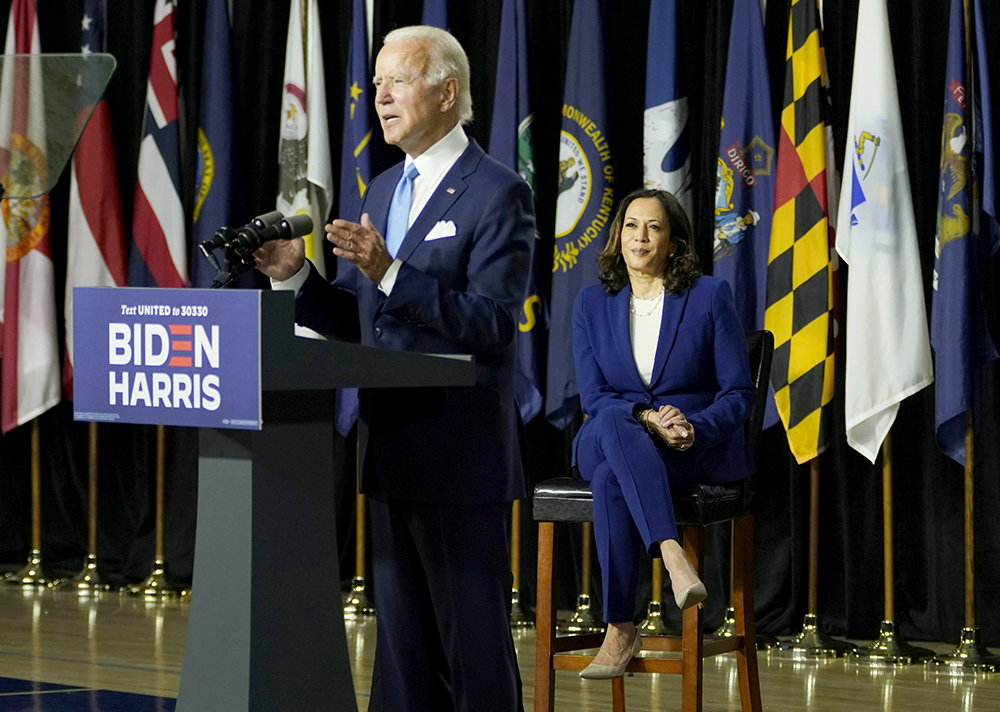|
Getting your Trinity Audio player ready...
|
The State of Israel, the only democracy in the Middle East and a crucial ally of the United States, is facing an unprecedented existential threat from Iran. This threat is not merely theoretical; it is a clear and present danger that could have catastrophic consequences not just for Israel, but for the United States and the entire Western world. The lack of decisive support from the Biden-Harris administration since the October 7th massacre in Israel has only exacerbated this perilous situation, underscoring the urgent need for strong, resolute leadership in the White House—leadership that understands the gravity of the threat and is willing to take bold action to counter it.
Iran’s ambition to destroy Israel has been a central tenet of its foreign policy since the Islamic Revolution of 1979. The regime in Tehran has openly called for the annihilation of the Jewish state, referring to Israel as a “cancerous tumor” that must be eradicated. This rhetoric is not merely inflammatory; it is backed by a relentless pursuit of military capabilities, including a nuclear weapons program, and the development of advanced missile technology capable of reaching Israeli territory.
The October 7th massacre, in which Hamas—a terrorist organization funded and armed by Iran—brutally murdered 1200 Israelis and others, was a stark reminder of the ever-present danger that Israel faces from Iranian-backed forces. But this attack was only a precursor to what could come if Iran, emboldened by a lack of international resolve, decides to launch a direct or proxy attack on Israel. The consequences of such an attack would be devastating, not only for Israel but for the entire region and the broader international community.
The potential downfall of Israel would represent a monumental shift in global geopolitics, with far-reaching consequences for the United States and the Western world. Israel is not just a strategic ally; it is a bulwark of democracy and stability in a region plagued by authoritarianism, extremism, and conflict. The loss of Israel would create a power vacuum that would likely be filled by hostile forces aligned with Iran, further destabilizing the Middle East and threatening global security.
For the United States, the implications of Israel’s downfall would be profound. Israel serves as America’s most reliable ally in the region, providing critical intelligence, military cooperation, and a forward base for projecting power in the Middle East. The collapse of Israel would severely weaken U.S. influence in the region, embolden adversaries like Iran, Russia, and China, and diminish America’s ability to defend its interests and protect its allies.
Moreover, the fall of Israel would have a chilling effect on the global struggle against terrorism. Israel has been on the front lines of the fight against Islamist extremism, and its intelligence and counterterrorism efforts have been instrumental in preventing attacks not only in the Middle East but around the world. Without Israel’s expertise and cooperation, the global fight against terrorism would be significantly hampered, leaving the United States and its allies more vulnerable to attacks.
The ripple effects of Israel’s downfall would extend beyond the Middle East. It would embolden anti-Western forces globally, leading to increased aggression from authoritarian regimes and a weakening of the democratic values that underpin the Western world. The message would be clear: the United States is no longer willing or able to defend its allies, making the world a far more dangerous place.

In the face of this existential threat, the Biden-Harris administration’s response has been alarmingly inadequate. Since the October 7th massacre, the administration has failed to provide the unequivocal support that Israel needs to defend itself against Iran and its proxies. Instead, there has been a disturbing pattern of equivocation, with the administration offering tepid statements of support while simultaneously pressing Israel to exercise “restraint” and prioritize diplomacy with an adversary that has shown no interest in peaceful resolution.
This lack of decisive action is not only a betrayal of a key ally but also a grave miscalculation of the stakes involved. By failing to stand firmly with Israel, the Biden-Harris administration is sending a dangerous message to Iran and other adversaries: that the United States is unwilling to fully commit to the defense of its allies. This perception of weakness only encourages aggression, increasing the likelihood of further attacks and escalating the risk of a full-scale conflict that could engulf the entire region.
The administration’s reluctance to confront Iran directly has also undermined efforts to prevent the regime from acquiring nuclear weapons. Despite Iran’s continued violations of the Joint Comprehensive Plan of Action (JCPOA) and its progress towards nuclear capability, the administration has remained committed to a policy of diplomacy and negotiation, even as it becomes increasingly clear that Iran is not negotiating in good faith. This approach has only given Iran more time to advance its nuclear program, bringing it closer to the point where it could potentially launch a nuclear strike against Israel.
In this moment of crisis, the United States needs a leader who understands the gravity of the threat posed by Iran and is willing to take bold, decisive action to counter it. Donald Trump, with his strong track record on foreign policy, is the leader America needs.
During his presidency, Trump demonstrated a clear understanding of the dangers posed by Iran. He withdrew the United States from the flawed JCPOA, recognizing that it was insufficient to prevent Iran from developing nuclear weapons. He imposed crippling sanctions on the Iranian regime, weakening its economy and limiting its ability to fund terrorist activities. And he took decisive military action when necessary, as demonstrated by the strike that killed Qassem Soleimani, the head of Iran’s Quds Force and a key architect of its regional terror network.
Trump’s commitment to Israel was unwavering. He recognized Jerusalem as the capital of Israel and moved the U.S. embassy there, a bold move that sent a clear message of support to Israel and its people. He brokered the Abraham Accords, a historic peace agreement between Israel and several Arab states, which strengthened Israel’s position in the region and opened new avenues for cooperation and stability.
A return to this kind of strong, principled leadership is essential if the United States is to successfully confront the existential threat posed by Iran. The Biden-Harris administration’s approach has been characterized by weakness and indecision, and the consequences of this approach are becoming increasingly clear. Without a change in direction, the United States risks losing not only a key ally in Israel but also its position as a global leader.
Israel’s survival is not just an Israeli issue; it is a matter of global security and stability. The United States must recognize that the downfall of Israel would have catastrophic consequences for the entire Western world. The Biden-Harris administration’s lack of support for Israel since the October 7th massacre is a dereliction of duty that puts both Israel and the United States at risk.
Now, more than ever, America needs strong leadership in the White House—leadership that understands the stakes, that is willing to confront adversaries head-on, and that will stand unwaveringly with our allies. Donald Trump has shown that he possesses these qualities, and his return to the presidency would restore the strength and resolve needed to face the challenges of today’s world. The time for decisive action is now, before it is too late.





